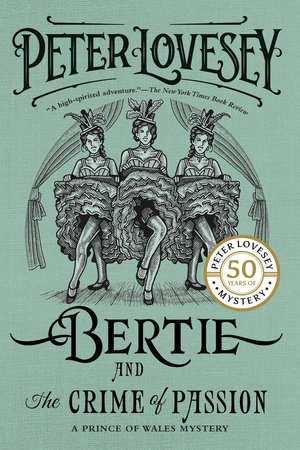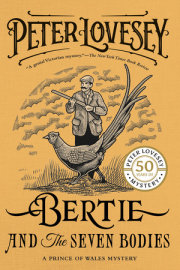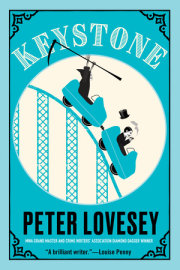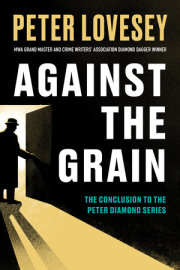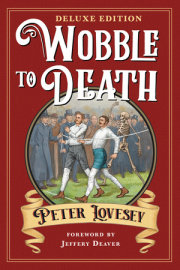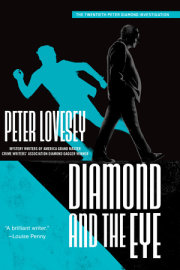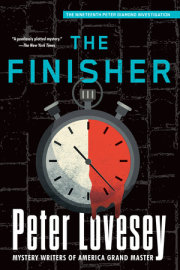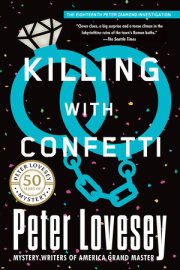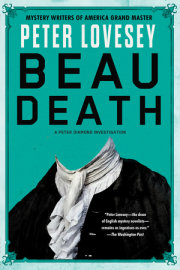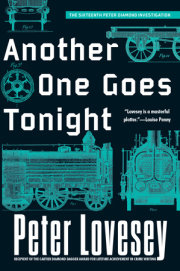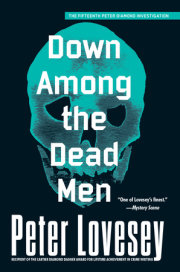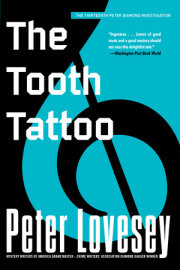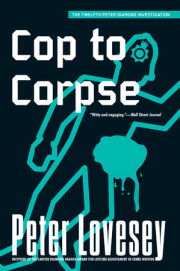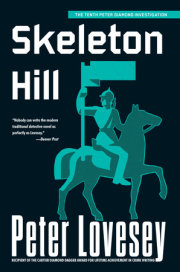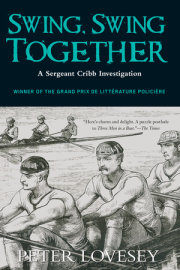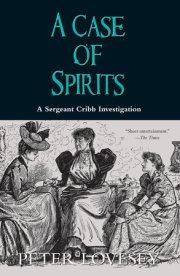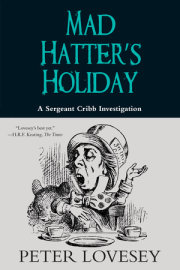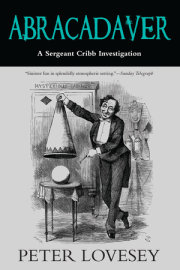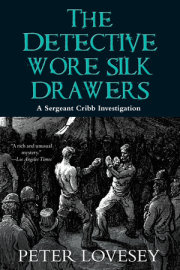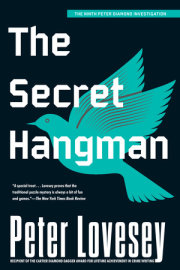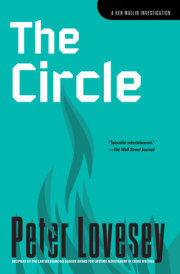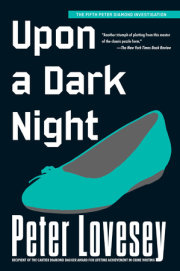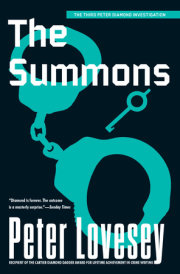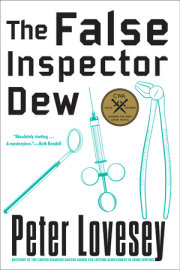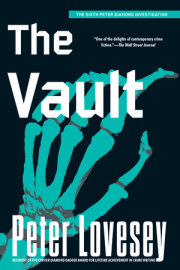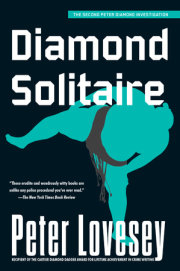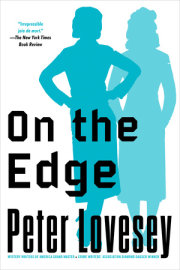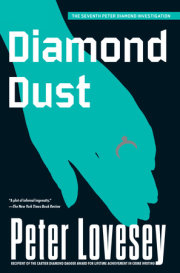The third and final entry of the Bertie Prince of Wales mystery series, featuring future King Edward VII, Albert Edward, as an amateur sleuth solving suspicious murders in Victorian England.
Bertie, amateur sleuth and the Crown Prince of Wales, loves food and women. This is why Bertie enjoys his frequent trips to Paris, a city that is known not only as the City of Lights, but also as the city of romance and fine cuisine. In 1891, however, Bertie’s yearly Paris vacation becomes much more eventful than he had anticipated when, soon after his arrival, he learns that the future son-in-law of his old friend, Jules d’ Agincourt, was recently murdered at the Moulin Rouge. Unable to resist practicing his detective skills, Bertie resolves to assist the Sûreté, the French police force, in solving the ongoing case. He enlists the help of the reluctant Sarah Bernhardt, renowned actress and Bertie’s long-time friend, and together, Bertie and Sarah travel around Paris following possible leads, questioning witnesses, and even apprehending the murder weapon. When the Sûreté discovers that the victim’s fiancée has a much older lover who was present at the scene of the murder, they immediately arrest him on the suspicion that the murder was a crime of passion. Bertie’s instincts tell him that this man is innocent, but the Sûreté is convinced he is the killer. With the threat of the guillotine looming over the innocent man’s head, it is up to Bertie to find the real killer and close the case before it is too late.
Bertie, amateur sleuth and the Crown Prince of Wales, loves food and women. This is why Bertie enjoys his frequent trips to Paris, a city that is known not only as the City of Lights, but also as the city of romance and fine cuisine. In 1891, however, Bertie’s yearly Paris vacation becomes much more eventful than he had anticipated when, soon after his arrival, he learns that the future son-in-law of his old friend, Jules d’ Agincourt, was recently murdered at the Moulin Rouge. Unable to resist practicing his detective skills, Bertie resolves to assist the Sûreté, the French police force, in solving the ongoing case. He enlists the help of the reluctant Sarah Bernhardt, renowned actress and Bertie’s long-time friend, and together, Bertie and Sarah travel around Paris following possible leads, questioning witnesses, and even apprehending the murder weapon. When the Sûreté discovers that the victim’s fiancée has a much older lover who was present at the scene of the murder, they immediately arrest him on the suspicion that the murder was a crime of passion. Bertie’s instincts tell him that this man is innocent, but the Sûreté is convinced he is the killer. With the threat of the guillotine looming over the innocent man’s head, it is up to Bertie to find the real killer and close the case before it is too late.
Praise for Bertie and the Crime of Passion
"Lovesey infuses his stories with tongue-in-cheek fun, wry humor, and gentle satire along with a sense of mystery and adventure . . . An intriguing mystery that's both entertaining and adventurous."
—Booklist
“Spirited . . . A lively evocation of fin-de-siecle Paris, a lightly ironic tone and some tidy plotting add up to another easy-to-take confection from this reliable British author.”
—Publishers Weekly
Praise for the Prince of Wales mysteries
"A genial Victorian mystery series . . . Mr. Lovesey must have been laughing up his sleeve when he lifted this Ten Little Indians plot from Agatha Christie and handed it to Bertie to make a royal botch of. That we can recognize the mechanics of the story and still enjoy the telling says much of the author's skill at weaving amusing characters and choice scandals into his narrative."
—The New York Times Book Review
“This is a delightful and amusing period piece, particularly in the interplay between the libidinous Bertie and his rather more intelligent wife, Alexandra, who stoically endures his inclination to dally with anything in skirts.”
—Sunday Express
“High-class Victorian entertainment written with wit.”
—The Times
“Seamlessly plotted, populated with a dynamic cast, and often howlingly funny.”
—Cleveland Plain Dealer
"Lovesey infuses his stories with tongue-in-cheek fun, wry humor, and gentle satire along with a sense of mystery and adventure . . . An intriguing mystery that's both entertaining and adventurous."
—Booklist
“Spirited . . . A lively evocation of fin-de-siecle Paris, a lightly ironic tone and some tidy plotting add up to another easy-to-take confection from this reliable British author.”
—Publishers Weekly
Praise for the Prince of Wales mysteries
"A genial Victorian mystery series . . . Mr. Lovesey must have been laughing up his sleeve when he lifted this Ten Little Indians plot from Agatha Christie and handed it to Bertie to make a royal botch of. That we can recognize the mechanics of the story and still enjoy the telling says much of the author's skill at weaving amusing characters and choice scandals into his narrative."
—The New York Times Book Review
“This is a delightful and amusing period piece, particularly in the interplay between the libidinous Bertie and his rather more intelligent wife, Alexandra, who stoically endures his inclination to dally with anything in skirts.”
—Sunday Express
“High-class Victorian entertainment written with wit.”
—The Times
“Seamlessly plotted, populated with a dynamic cast, and often howlingly funny.”
—Cleveland Plain Dealer
With nice timing, Jack trotted in and sniffed La Bernhardt’s boots. For this understandable curiosity, my terrier was snatched up and hauled to her bosom. He endured it philosophically.
“What is the gossip?” I asked, steering the conversation into more familiar waters.
“About you—or me?” asked Sarah.
“About everyone else, of course. Is there anything I should be told about the Agincourts?”
She gave me a penetrating stare with those Cleopatra eyes. “When did you arrive?”
“Last night.”
“Haven’t you heard about the man who was shot at the Moulin Rouge last week?”
“A man shot?” I spoke so sharply that Jack gave a yelp and leapt from Bernhardt’s arms. “Not Jules d’Agincourt?”
“No, not Jules.”
“Thank God for that. You’d better tell me, Sarah. Jules was due to call on me today and has canceled. There was some message about a family crisis.”
“A family crisis!” This innocuous phrase caused a hoot of laughter. The refinements of polite conversation are quite foreign to Bernhardt.
“Come, come,” I said. “If someone was shot and it concerns the Agincourts in some way, I demand to be told.”
She said, “Do you remember Rosine?”
“The child?”
“A child no longer, Bertie.”
“Little Rosine was the victim? That’s dreadful! She used to sit on my knee and play with my watch chain.”
“Stop leaping to conclusions, Bertie. I’m trying to tell you that Rosine blossomed into the most beautiful woman in Paris.”
Coming from Bernhardt, this was uncommonly altruistic, and I told her so.
She angled her head in a pose that emphasized her flawless neck and said, “I’m a grandmother now.”
I said—and meant it, “That, I refuse to believe, Sarah.”
Having fished for her compliment and landed it, she returned to the sinister matter under discussion: “Rosine became engaged. It was her fiancé who was killed.”
“At the Moulin Rouge?”
She nodded. “The papers are full of it. I’m surprised you haven’t heard.”
“I haven’t looked at a paper since I got here. An accident?”
“Accident, my aunt! In a dance hall? It was cold-blooded murder, Bertie.”
“My word. That would certainly explain why Jules felt unable to call on me.” I stood up, my sleuthing sense alerted. “Have they arrested the assassin?”
“The Sûreté?” She rolled her eyes upward.
“Then I must find out whether I can be of assistance.”
Sarah now introduced a note of caution. “It may not be exactly as I described it. You know what the newspapers are like.”
“You don’t have to tell me, of all people, about the newspapers, my dear.”
“Everyone likes to dramatize a little.”
“Speaking of drama,” I said, my thoughts galloping ahead, “what are you playing at the moment?”
“Nothing.”
“Resting—is that the expression?”
“Hardly. A week from today, I embark with the Bernhardt Troupe on a world tour, commencing in New York.”
“Excellent!” I told her. “In that case, my turtledove, you may join me in unraveling this mystery.” Momentous decisions are sometimes taken lightly. Bernhardt had never seen me in fearless pursuit of a murderer. Who could tell what effect Bertie the Detective might have on her? This could be the opportunity I had waited twenty years to grasp.
But she pursed her lips ominously.
“No, Bertie.”
“No, Sarah?”
“I am insulted.”
I stared at her. “But why?”
“I will not be likened to a turtle, even by a prince.”
“A turtledove, my dear. That is something else—a pretty bird renowned for the purity of its note and the constancy of its affection.”
“Tourterelle.”
“What did I say?”
“Tortue”
A foolish error, particularly as I’ve consumed gallons of turtle soup in my time. “But you will accompany me?”
“Impossible. I have to pack for the world tour, Bertie.”
“How many trunks?”
“Seventy-five.”
I blinked in disbelief “For the entire troupe?”
She opened her hands in a gesture of helplessness. “For my simple needs.”
“You mean the costumes you wear in the plays?”
“No, no, the costumes travel separately, in fifty-six enormous crates. The trunks contain my personal clothes.”
I resisted the impulse to comment; after all, it was her own fortune that funded this more-than-adequate wardrobe. “But you have a maid, surely. She’ll do the packing. Trust her.”
Without committing herself, Sarah asked, “Bertie, how exactly do you propose to investigate this mystery, as you term it?”
“I shall visit the Agincourts and offer my services. I am not without experience as a detective.”
“A surprise visit?”
“Exactly.”
“Royalty on the doorstep—is that fair, Bertie?”
“I shan’t expect a fanfare, if that is what you mean. They’re old friends, Sarah. I’ve known Jules for twenty years. Damn it all, he’s not far short of royalty himself.”
She clicked her tongue at my last remark and said, “We had a revolution, Bertie.”
I refrained from pointing out that since 1789 France had crowned two emperors and three kings. “Well, am I to call a cab?”
“A cab?”
“I’m sure you don’t approve of carriages in your republic.”
She put her tongue out. She can be extremely vulgar on occasion.
I informed Knollys simply that I was going for a drive with Madame Bernhardt. Knollys doesn’t regard my detective escapades with unqualified approval. Come to that, he didn’t look overjoyed at the prospect of my sharing a carriage with Sarah. The poor fellow has more than enough worries, so I try not to add to them.
Montroger, the main residence of the Agincourt family, is a short drive out of the city, on the road to Versailles. We used a closed landau and Sarah prattled on so much about her forthcoming world tour that I was beginning to regret recruiting her as my assistant. I was mightily relieved when the main gates of the park came in view, because she had only reached Chicago and there remained at least eighteen months of the itinerary to discuss.
Montroger is probably smaller than Sandringham, but I wouldn’t stake my inheritance on it. These Louis Quinze mansions, all shutters and balconies, can be deceptive. I must say, it looked strikingly like a house in a fairy story, with a glittering patina of frost on the gray slate roof.
Sarah insisted on remaining in the carriage while I went to the door. She was uneasy about our arriving unannounced, and I suppose she was right. The advent of the two of us, the Prince of Wales and the first lady of the French theater, might have been daunting. I took the view that, if nothing else, our arrival would succeed in distracting the family from their trouble.
When I announced myself, the girl who answered the bell behaved much as I expected, with a touch more Gallic hysteria than one experiences in England. I’m well used to it. I make more informal calls on my friends in France than is generally realized, and the domestics always act as if the Day of Judgment is at hand. It’s to be expected, and I blame nobody, as I always make clear.
That first panic over, the girl admitted me to a reception room where there was a decent fire and a copy of Le Monde. I found nothing about the murder. I went to the window and waved the newspaper sociably to my companion, sitting chilled to the bone in the landau. “Bertie, mon ami!”
I turned to greet my dear old friend Jules, immaculate as always in a morning suit and pale purple cravat. He crossed the room and embraced me in the French fashion, regardless that his cheeks got rasped in the process.
“You must forgive me for descending on you. I received your message that you have a family crisis,” I explained, “but I couldn’t allow that to prevent me from seeing my old friend.”
His eyes moistened. They are a very emotional nation. He held on to my right hand with both of his. “Such grief!” Of course, I’m translating here. What he actually said was, “Quelle douleur!” and the way the French have of speaking the phrase makes it immeasurably more heartrending than the English equivalent.
How can I depict Jules in words? Unprepossessing in physical terms, slight in stature, with a long, lined face and a nose that preferred to hide behind a cigarette, and usually did, he nonetheless exuded charm. “But it is so uplifting to see you, Bertie. Let us drink champagne.”
I mentioned to Jules that Bernhardt was freezing to death outside.
He gave a little gasp of amazement at the news, said that he was doubly honored, and insisted on going in person to the carriage to invite her inside. It says much for his character that he could still be so hospitable.
The shivering Sarah was escorted in and given cognac in preference to the bubbly. Because she was so cold, she remained wrapped in the cloak and her fur bonnet, striking a Napoleonic pose in front of the fire. Jules knew her well; how well, one prefers not to inquire, but then, Sarah is such an institution that most of Paris behaves as if it knows her intimately.
In the circumstances, small talk about the family was going to be difficult, so once we had the glasses in our hands and had drunk one another’s health, I trotted out the old maxim that a trouble shared is a trouble halved and asked Jules if he cared to speak about the matter.
He gave a slight sigh. “It is a tragedy, Bertie. I never dreamed that such a calamity could devastate my family. Rosine, my only daughter—do you remember Rosine?”
“The last time I saw her was at Biarritz. She must have been about thirteen.”
“She’s twenty now, a young woman. Exquisitely beautiful. I’m not expressing a father’s biased opinion, Bertie; I’m quoting Le Figaro. But beautiful isn’t the word that would spring to mind if you saw my little Rosine now. She is racked with grief. I even begin to fear for her sanity, she has taken this so badly. And her mother, Juliette, of course, is in a state of profound shock. You must forgive us if neither of them comes to be presented.”
“Jules, I wouldn’t dream of disturbing them,” I assured him, recalling Juliette as a domineering woman who wanted the family and everyone else to dance to her tune. Her state of profound shock was a happy escape for us.
Sarah added with more tact than I thought she possessed, “It is more than enough that you are willing to receive us.”
In a low, expressionless tone that was so unlike his usual conversation, Jules gave us the salient facts. “Rosine became engaged two weeks ago to a young man called Maurice Letissier. The Letissiers are well regarded, a family who have occupied the same château in the Loire for three centuries. I know the parents well, and—without being snobbish—they are the sort of people one hopes one’s daughter will live among.”
“They race horses,” I remarked, to indicate that I’d heard of them.
“Yes, indeed. They have stables at Longchamp, just down the road. I don’t think Maurice was actively involved in the racing. His sport was shooting.”
“What did he shoot—grouse?”
“Waterfowl mainly, I believe.”
“So what happened? Was it a loose gun?”
“No, no. I’m coming to that. All this is frightfully confidential, Bertie. There’s been far too much in the newspapers already.”
I assured him warmly, “You may depend on me. I’ve held the press at bay for most of my adult life. And I’ll vouch for Sarah’s discretion.”
Jules nodded. “I can vouch for that myself.”
Bernhardt turned her eyes up to the ceiling as if she were in direct communication with the Almighty. I’d seen her do it before, when playing Jeanne d’Arc.
Satisfied that we could be trusted, Jules informed us, “The engagement was announced a week ago last Saturday and the civil marriage was to be on the twenty-third of June, followed by a church wedding the next day.”
“So soon?”
Bernhardt said, “Bertie, in France we don’t go in for long engagements.”
“The details of the marriage contract were settled in a most civilized way between the families,” Jules went on to inform us. “I found Letissier senior a charming fellow to deal with. On Wednesday, the young couple dined with the Letissiers at the château, and on Friday we took them out to Magny’s.”
“Magny’s. I frequently dine there myself,” I told him. “Was it an agreeable meal?”
“The food, you mean? Absolutely. One couldn’t fault it.”
“And the conversation?”
“Oh, Juliette, as usual, had more to say than the rest of us put together. If possible, the engagement had made her more animated than ever. It was an ambition fulfilled. Not that the rest of us were silent, but you know how she can be. We talked until almost eleven and then went on to a dance hall.”
“Saucy!”
“Oh, it was Rosine’s idea. She’d planned all week that we would end the evening that way. According to our daughter, everyone is going to the Moulin Rouge near Montmartre these days. Respectable people.”
“I’ve been there,” put in Bernhardt, begging the question.
Jules went on: “Rosine insisted that it was terribly chic and there was supposed to be a marvelous cabaret. I’ve heard of such places before and I was none too enthusiastic, but Maurice said it was a stunning idea, so I felt obliged to fall in with the suggestion. You can’t really stand in the way of a young couple when you’re celebrating their engagement. Off we went.”
“The four of you?”
“Five. We had Tristan with us—didn’t I say?”
“Tristan?”
“My son. Rosine’s young brother. He’s eighteen now, in his first year at the Sorbonne. Naturally, the dance hall had his vote, too. We arrived about half past eleven, when the place was filling up with people coming from the restaurants. I was reassured to find that we weren’t by any means the only party wearing silk hats, although it wasn’t exactly the Alcazar. Some of the women we passed in the hall were blatantly cocottes.”
“And good luck to them,” said I smoothly, at the same time giving him a broad wink, for I happened to know that Bernhardt’s mother had been one of the sisterhood.
“Oh, certainly,” he succeeded in saying. “We were shown to a table at the edge of the dance floor and served with drinks. A band was playing for general dancing, so by turns we joined in, and I must admit that it was amusing to tour the floor with some of those exotic characters who patronize the place. Then at midnight, the floor was cleared and the cabaret announced. When I say ‘cleared,’ I’m referring to a space at the center not much larger than this room. In fact, it was the signal for people to crowd onto the floor in significant numbers and it rapidly became obvious that we would see nothing unless we abandoned our table and joined them, so we did. I remember feeling anxious about pickpockets.” Jules sighed. “Pickpockets! If I’d known what was about to happen, I’d gladly have settled for having my pocket picked. We found ourselves in the thick of the crowd, with a partial view over the shoulders of people ahead. There were others behind us; everyone very excited, for this was one of the nights when La Goulue performed.”
“That creature!” said Bernhardt.
Perhaps I should explain here that the lady who rejoiced in the soubriquet of La Goulue, “The Glutton,” was at this time (1891) at the height of her fame, a performer of outrageous dances verging on indecency, yet unquestionably one of the chief attractions in Paris. Bernhardt’s contempt may have been mixed with some envy.
“First we had the cancan, of which I saw very little from our position, although the music, so-called, was deafening, and then La Goulue was announced and made her entrance.
She need not have bothered so far as I was concerned, because all I could see of her was the strange topknot of carroty hair that is her trademark, but her partner, a tall, thin man of grotesque features known as Valentin, was more visible in his top hat, leading her in a surprisingly subdued dance. All around us, people were calling out and straining for a better view. It was not unlike being close to the winning post at the races. I’m telling you all this because of what happened shortly after. The chahut was announced and the tempo of the music quickened.”
“Chahut?” I said dubiously, for the word means “uproar” or something similar in the French argot.
Bernhardt rapidly informed me that it was a dance, an old-fashioned dance recently revived and made notorious by La Goulue and others and involving two athletic feats, le grand écart and le port d’armes, high kicks that required the dancers to perform the splits in the upright position while balanced on one leg.
“Chahut, it became in the literal sense,” Jules resumed, “for just as the dance was reaching its climax, the dancers leaping like beings possessed, the music at crescendo, the crowd shrieking encouragement, there were two deafening explosions close at hand. I felt a terrific jolt the first time and another immediately after as people reacted, uncertain whether it was part of the performance. There were some screams and I caught the smell of cordite, though I still didn’t fully understand what had happened. Maurice, you see, was still on his feet, though mortally wounded by two shots in the back.”
“Dreadful!”
“Yes, it was. The pressure of the crowd kept him upright. There was some screaming from hysterical people, but I think no one appreciated that murder had been committed on the floor of the Moulin Rouge until the dancers stopped uncertainly and the crowd drew back. I gripped Maurice under the armpit and someone else was on his other side. Between us, we were holding him up. We let him down gently to the floorboards. He made no sound. I believe he was already dead. Of course a doctor came forward and after a few minutes we moved him to a dressing room. I could, see myself that it was a matter for a detective, not a doctor.”
“What an appalling crime,” I said. “Is no one apprehended? There must have been a hundred witnesses.”
Jules gave a Gallic shrug. “The Sûreté are investigating. They say paradoxically that too many witnesses are an impediment. It is difficult to find an assassin in a crowd.”
“But who would want to shoot the young man? Did he have enemies?”
“None that my family has heard about.”
“Could it have been a case of mistaken identity?” (You can see how actively my brain was working, reviewing each possibility.)
“They simply don’t know, Bertie. Goron himself is at work on the case.”
“Who’s that?”
“Goron—chef de la Sûreté.”
“Is he any good?”
He stared at me as if I had insulted the tricolor.
Bernhardt told me, “Marie-François Goron is a legend in Paris. He arrested Allmayer, the King of Rogues, and Pranzini, the triple murderer.”
“But he has failed so far to find the killer of young Letissier,” I remarked in a way that deflated them both. “Jules, I myself am not inexperienced as a criminal investigator. A mere amateur, yes. The resources of the Sûreté are not at my disposal. No gendarmerie, no whistles, no capes. However, I have Madame Sarah Bernhardt to assist me, and—without denigrating Monsieur Goron—I venture to suggest that she and I are as capable of solving this mystery as
anyone else in Paris.”
Bernhardt turned to me as if I’d tugged her bustle. Fortunately, poor old Jules didn’t notice. He was far too occupied trying to think what to say to me.
I saved him the trouble. “Of course you are about to remark that I shouldn’t undertake so dangerous an assignment. It has been said before, Jules, and more than once. I appreciate the sentiment each time I hear it, I give my thanks, and then I ignore it completely. Good Lord, we’re the oldest of friends. I can’t turn my back on you in this hour of crisis.”
His face creased with emotion. “Bertie, don’t think me ungrateful—”
“Never,” said I, placing a hand masterfully around his shoulder. “The decision is made. Tonight Sarah and I shall visit the Moulin Rouge to see where the poor young man was murdered.”
“What is the gossip?” I asked, steering the conversation into more familiar waters.
“About you—or me?” asked Sarah.
“About everyone else, of course. Is there anything I should be told about the Agincourts?”
She gave me a penetrating stare with those Cleopatra eyes. “When did you arrive?”
“Last night.”
“Haven’t you heard about the man who was shot at the Moulin Rouge last week?”
“A man shot?” I spoke so sharply that Jack gave a yelp and leapt from Bernhardt’s arms. “Not Jules d’Agincourt?”
“No, not Jules.”
“Thank God for that. You’d better tell me, Sarah. Jules was due to call on me today and has canceled. There was some message about a family crisis.”
“A family crisis!” This innocuous phrase caused a hoot of laughter. The refinements of polite conversation are quite foreign to Bernhardt.
“Come, come,” I said. “If someone was shot and it concerns the Agincourts in some way, I demand to be told.”
She said, “Do you remember Rosine?”
“The child?”
“A child no longer, Bertie.”
“Little Rosine was the victim? That’s dreadful! She used to sit on my knee and play with my watch chain.”
“Stop leaping to conclusions, Bertie. I’m trying to tell you that Rosine blossomed into the most beautiful woman in Paris.”
Coming from Bernhardt, this was uncommonly altruistic, and I told her so.
She angled her head in a pose that emphasized her flawless neck and said, “I’m a grandmother now.”
I said—and meant it, “That, I refuse to believe, Sarah.”
Having fished for her compliment and landed it, she returned to the sinister matter under discussion: “Rosine became engaged. It was her fiancé who was killed.”
“At the Moulin Rouge?”
She nodded. “The papers are full of it. I’m surprised you haven’t heard.”
“I haven’t looked at a paper since I got here. An accident?”
“Accident, my aunt! In a dance hall? It was cold-blooded murder, Bertie.”
“My word. That would certainly explain why Jules felt unable to call on me.” I stood up, my sleuthing sense alerted. “Have they arrested the assassin?”
“The Sûreté?” She rolled her eyes upward.
“Then I must find out whether I can be of assistance.”
Sarah now introduced a note of caution. “It may not be exactly as I described it. You know what the newspapers are like.”
“You don’t have to tell me, of all people, about the newspapers, my dear.”
“Everyone likes to dramatize a little.”
“Speaking of drama,” I said, my thoughts galloping ahead, “what are you playing at the moment?”
“Nothing.”
“Resting—is that the expression?”
“Hardly. A week from today, I embark with the Bernhardt Troupe on a world tour, commencing in New York.”
“Excellent!” I told her. “In that case, my turtledove, you may join me in unraveling this mystery.” Momentous decisions are sometimes taken lightly. Bernhardt had never seen me in fearless pursuit of a murderer. Who could tell what effect Bertie the Detective might have on her? This could be the opportunity I had waited twenty years to grasp.
But she pursed her lips ominously.
“No, Bertie.”
“No, Sarah?”
“I am insulted.”
I stared at her. “But why?”
“I will not be likened to a turtle, even by a prince.”
“A turtledove, my dear. That is something else—a pretty bird renowned for the purity of its note and the constancy of its affection.”
“Tourterelle.”
“What did I say?”
“Tortue”
A foolish error, particularly as I’ve consumed gallons of turtle soup in my time. “But you will accompany me?”
“Impossible. I have to pack for the world tour, Bertie.”
“How many trunks?”
“Seventy-five.”
I blinked in disbelief “For the entire troupe?”
She opened her hands in a gesture of helplessness. “For my simple needs.”
“You mean the costumes you wear in the plays?”
“No, no, the costumes travel separately, in fifty-six enormous crates. The trunks contain my personal clothes.”
I resisted the impulse to comment; after all, it was her own fortune that funded this more-than-adequate wardrobe. “But you have a maid, surely. She’ll do the packing. Trust her.”
Without committing herself, Sarah asked, “Bertie, how exactly do you propose to investigate this mystery, as you term it?”
“I shall visit the Agincourts and offer my services. I am not without experience as a detective.”
“A surprise visit?”
“Exactly.”
“Royalty on the doorstep—is that fair, Bertie?”
“I shan’t expect a fanfare, if that is what you mean. They’re old friends, Sarah. I’ve known Jules for twenty years. Damn it all, he’s not far short of royalty himself.”
She clicked her tongue at my last remark and said, “We had a revolution, Bertie.”
I refrained from pointing out that since 1789 France had crowned two emperors and three kings. “Well, am I to call a cab?”
“A cab?”
“I’m sure you don’t approve of carriages in your republic.”
She put her tongue out. She can be extremely vulgar on occasion.
I informed Knollys simply that I was going for a drive with Madame Bernhardt. Knollys doesn’t regard my detective escapades with unqualified approval. Come to that, he didn’t look overjoyed at the prospect of my sharing a carriage with Sarah. The poor fellow has more than enough worries, so I try not to add to them.
Montroger, the main residence of the Agincourt family, is a short drive out of the city, on the road to Versailles. We used a closed landau and Sarah prattled on so much about her forthcoming world tour that I was beginning to regret recruiting her as my assistant. I was mightily relieved when the main gates of the park came in view, because she had only reached Chicago and there remained at least eighteen months of the itinerary to discuss.
Montroger is probably smaller than Sandringham, but I wouldn’t stake my inheritance on it. These Louis Quinze mansions, all shutters and balconies, can be deceptive. I must say, it looked strikingly like a house in a fairy story, with a glittering patina of frost on the gray slate roof.
Sarah insisted on remaining in the carriage while I went to the door. She was uneasy about our arriving unannounced, and I suppose she was right. The advent of the two of us, the Prince of Wales and the first lady of the French theater, might have been daunting. I took the view that, if nothing else, our arrival would succeed in distracting the family from their trouble.
When I announced myself, the girl who answered the bell behaved much as I expected, with a touch more Gallic hysteria than one experiences in England. I’m well used to it. I make more informal calls on my friends in France than is generally realized, and the domestics always act as if the Day of Judgment is at hand. It’s to be expected, and I blame nobody, as I always make clear.
That first panic over, the girl admitted me to a reception room where there was a decent fire and a copy of Le Monde. I found nothing about the murder. I went to the window and waved the newspaper sociably to my companion, sitting chilled to the bone in the landau. “Bertie, mon ami!”
I turned to greet my dear old friend Jules, immaculate as always in a morning suit and pale purple cravat. He crossed the room and embraced me in the French fashion, regardless that his cheeks got rasped in the process.
“You must forgive me for descending on you. I received your message that you have a family crisis,” I explained, “but I couldn’t allow that to prevent me from seeing my old friend.”
His eyes moistened. They are a very emotional nation. He held on to my right hand with both of his. “Such grief!” Of course, I’m translating here. What he actually said was, “Quelle douleur!” and the way the French have of speaking the phrase makes it immeasurably more heartrending than the English equivalent.
How can I depict Jules in words? Unprepossessing in physical terms, slight in stature, with a long, lined face and a nose that preferred to hide behind a cigarette, and usually did, he nonetheless exuded charm. “But it is so uplifting to see you, Bertie. Let us drink champagne.”
I mentioned to Jules that Bernhardt was freezing to death outside.
He gave a little gasp of amazement at the news, said that he was doubly honored, and insisted on going in person to the carriage to invite her inside. It says much for his character that he could still be so hospitable.
The shivering Sarah was escorted in and given cognac in preference to the bubbly. Because she was so cold, she remained wrapped in the cloak and her fur bonnet, striking a Napoleonic pose in front of the fire. Jules knew her well; how well, one prefers not to inquire, but then, Sarah is such an institution that most of Paris behaves as if it knows her intimately.
In the circumstances, small talk about the family was going to be difficult, so once we had the glasses in our hands and had drunk one another’s health, I trotted out the old maxim that a trouble shared is a trouble halved and asked Jules if he cared to speak about the matter.
He gave a slight sigh. “It is a tragedy, Bertie. I never dreamed that such a calamity could devastate my family. Rosine, my only daughter—do you remember Rosine?”
“The last time I saw her was at Biarritz. She must have been about thirteen.”
“She’s twenty now, a young woman. Exquisitely beautiful. I’m not expressing a father’s biased opinion, Bertie; I’m quoting Le Figaro. But beautiful isn’t the word that would spring to mind if you saw my little Rosine now. She is racked with grief. I even begin to fear for her sanity, she has taken this so badly. And her mother, Juliette, of course, is in a state of profound shock. You must forgive us if neither of them comes to be presented.”
“Jules, I wouldn’t dream of disturbing them,” I assured him, recalling Juliette as a domineering woman who wanted the family and everyone else to dance to her tune. Her state of profound shock was a happy escape for us.
Sarah added with more tact than I thought she possessed, “It is more than enough that you are willing to receive us.”
In a low, expressionless tone that was so unlike his usual conversation, Jules gave us the salient facts. “Rosine became engaged two weeks ago to a young man called Maurice Letissier. The Letissiers are well regarded, a family who have occupied the same château in the Loire for three centuries. I know the parents well, and—without being snobbish—they are the sort of people one hopes one’s daughter will live among.”
“They race horses,” I remarked, to indicate that I’d heard of them.
“Yes, indeed. They have stables at Longchamp, just down the road. I don’t think Maurice was actively involved in the racing. His sport was shooting.”
“What did he shoot—grouse?”
“Waterfowl mainly, I believe.”
“So what happened? Was it a loose gun?”
“No, no. I’m coming to that. All this is frightfully confidential, Bertie. There’s been far too much in the newspapers already.”
I assured him warmly, “You may depend on me. I’ve held the press at bay for most of my adult life. And I’ll vouch for Sarah’s discretion.”
Jules nodded. “I can vouch for that myself.”
Bernhardt turned her eyes up to the ceiling as if she were in direct communication with the Almighty. I’d seen her do it before, when playing Jeanne d’Arc.
Satisfied that we could be trusted, Jules informed us, “The engagement was announced a week ago last Saturday and the civil marriage was to be on the twenty-third of June, followed by a church wedding the next day.”
“So soon?”
Bernhardt said, “Bertie, in France we don’t go in for long engagements.”
“The details of the marriage contract were settled in a most civilized way between the families,” Jules went on to inform us. “I found Letissier senior a charming fellow to deal with. On Wednesday, the young couple dined with the Letissiers at the château, and on Friday we took them out to Magny’s.”
“Magny’s. I frequently dine there myself,” I told him. “Was it an agreeable meal?”
“The food, you mean? Absolutely. One couldn’t fault it.”
“And the conversation?”
“Oh, Juliette, as usual, had more to say than the rest of us put together. If possible, the engagement had made her more animated than ever. It was an ambition fulfilled. Not that the rest of us were silent, but you know how she can be. We talked until almost eleven and then went on to a dance hall.”
“Saucy!”
“Oh, it was Rosine’s idea. She’d planned all week that we would end the evening that way. According to our daughter, everyone is going to the Moulin Rouge near Montmartre these days. Respectable people.”
“I’ve been there,” put in Bernhardt, begging the question.
Jules went on: “Rosine insisted that it was terribly chic and there was supposed to be a marvelous cabaret. I’ve heard of such places before and I was none too enthusiastic, but Maurice said it was a stunning idea, so I felt obliged to fall in with the suggestion. You can’t really stand in the way of a young couple when you’re celebrating their engagement. Off we went.”
“The four of you?”
“Five. We had Tristan with us—didn’t I say?”
“Tristan?”
“My son. Rosine’s young brother. He’s eighteen now, in his first year at the Sorbonne. Naturally, the dance hall had his vote, too. We arrived about half past eleven, when the place was filling up with people coming from the restaurants. I was reassured to find that we weren’t by any means the only party wearing silk hats, although it wasn’t exactly the Alcazar. Some of the women we passed in the hall were blatantly cocottes.”
“And good luck to them,” said I smoothly, at the same time giving him a broad wink, for I happened to know that Bernhardt’s mother had been one of the sisterhood.
“Oh, certainly,” he succeeded in saying. “We were shown to a table at the edge of the dance floor and served with drinks. A band was playing for general dancing, so by turns we joined in, and I must admit that it was amusing to tour the floor with some of those exotic characters who patronize the place. Then at midnight, the floor was cleared and the cabaret announced. When I say ‘cleared,’ I’m referring to a space at the center not much larger than this room. In fact, it was the signal for people to crowd onto the floor in significant numbers and it rapidly became obvious that we would see nothing unless we abandoned our table and joined them, so we did. I remember feeling anxious about pickpockets.” Jules sighed. “Pickpockets! If I’d known what was about to happen, I’d gladly have settled for having my pocket picked. We found ourselves in the thick of the crowd, with a partial view over the shoulders of people ahead. There were others behind us; everyone very excited, for this was one of the nights when La Goulue performed.”
“That creature!” said Bernhardt.
Perhaps I should explain here that the lady who rejoiced in the soubriquet of La Goulue, “The Glutton,” was at this time (1891) at the height of her fame, a performer of outrageous dances verging on indecency, yet unquestionably one of the chief attractions in Paris. Bernhardt’s contempt may have been mixed with some envy.
“First we had the cancan, of which I saw very little from our position, although the music, so-called, was deafening, and then La Goulue was announced and made her entrance.
She need not have bothered so far as I was concerned, because all I could see of her was the strange topknot of carroty hair that is her trademark, but her partner, a tall, thin man of grotesque features known as Valentin, was more visible in his top hat, leading her in a surprisingly subdued dance. All around us, people were calling out and straining for a better view. It was not unlike being close to the winning post at the races. I’m telling you all this because of what happened shortly after. The chahut was announced and the tempo of the music quickened.”
“Chahut?” I said dubiously, for the word means “uproar” or something similar in the French argot.
Bernhardt rapidly informed me that it was a dance, an old-fashioned dance recently revived and made notorious by La Goulue and others and involving two athletic feats, le grand écart and le port d’armes, high kicks that required the dancers to perform the splits in the upright position while balanced on one leg.
“Chahut, it became in the literal sense,” Jules resumed, “for just as the dance was reaching its climax, the dancers leaping like beings possessed, the music at crescendo, the crowd shrieking encouragement, there were two deafening explosions close at hand. I felt a terrific jolt the first time and another immediately after as people reacted, uncertain whether it was part of the performance. There were some screams and I caught the smell of cordite, though I still didn’t fully understand what had happened. Maurice, you see, was still on his feet, though mortally wounded by two shots in the back.”
“Dreadful!”
“Yes, it was. The pressure of the crowd kept him upright. There was some screaming from hysterical people, but I think no one appreciated that murder had been committed on the floor of the Moulin Rouge until the dancers stopped uncertainly and the crowd drew back. I gripped Maurice under the armpit and someone else was on his other side. Between us, we were holding him up. We let him down gently to the floorboards. He made no sound. I believe he was already dead. Of course a doctor came forward and after a few minutes we moved him to a dressing room. I could, see myself that it was a matter for a detective, not a doctor.”
“What an appalling crime,” I said. “Is no one apprehended? There must have been a hundred witnesses.”
Jules gave a Gallic shrug. “The Sûreté are investigating. They say paradoxically that too many witnesses are an impediment. It is difficult to find an assassin in a crowd.”
“But who would want to shoot the young man? Did he have enemies?”
“None that my family has heard about.”
“Could it have been a case of mistaken identity?” (You can see how actively my brain was working, reviewing each possibility.)
“They simply don’t know, Bertie. Goron himself is at work on the case.”
“Who’s that?”
“Goron—chef de la Sûreté.”
“Is he any good?”
He stared at me as if I had insulted the tricolor.
Bernhardt told me, “Marie-François Goron is a legend in Paris. He arrested Allmayer, the King of Rogues, and Pranzini, the triple murderer.”
“But he has failed so far to find the killer of young Letissier,” I remarked in a way that deflated them both. “Jules, I myself am not inexperienced as a criminal investigator. A mere amateur, yes. The resources of the Sûreté are not at my disposal. No gendarmerie, no whistles, no capes. However, I have Madame Sarah Bernhardt to assist me, and—without denigrating Monsieur Goron—I venture to suggest that she and I are as capable of solving this mystery as
anyone else in Paris.”
Bernhardt turned to me as if I’d tugged her bustle. Fortunately, poor old Jules didn’t notice. He was far too occupied trying to think what to say to me.
I saved him the trouble. “Of course you are about to remark that I shouldn’t undertake so dangerous an assignment. It has been said before, Jules, and more than once. I appreciate the sentiment each time I hear it, I give my thanks, and then I ignore it completely. Good Lord, we’re the oldest of friends. I can’t turn my back on you in this hour of crisis.”
His face creased with emotion. “Bertie, don’t think me ungrateful—”
“Never,” said I, placing a hand masterfully around his shoulder. “The decision is made. Tonight Sarah and I shall visit the Moulin Rouge to see where the poor young man was murdered.”
Copyright © 1993 by Peter Lovesey. All rights reserved. No part of this excerpt may be reproduced or reprinted without permission in writing from the publisher.
About
The third and final entry of the Bertie Prince of Wales mystery series, featuring future King Edward VII, Albert Edward, as an amateur sleuth solving suspicious murders in Victorian England.
Bertie, amateur sleuth and the Crown Prince of Wales, loves food and women. This is why Bertie enjoys his frequent trips to Paris, a city that is known not only as the City of Lights, but also as the city of romance and fine cuisine. In 1891, however, Bertie’s yearly Paris vacation becomes much more eventful than he had anticipated when, soon after his arrival, he learns that the future son-in-law of his old friend, Jules d’ Agincourt, was recently murdered at the Moulin Rouge. Unable to resist practicing his detective skills, Bertie resolves to assist the Sûreté, the French police force, in solving the ongoing case. He enlists the help of the reluctant Sarah Bernhardt, renowned actress and Bertie’s long-time friend, and together, Bertie and Sarah travel around Paris following possible leads, questioning witnesses, and even apprehending the murder weapon. When the Sûreté discovers that the victim’s fiancée has a much older lover who was present at the scene of the murder, they immediately arrest him on the suspicion that the murder was a crime of passion. Bertie’s instincts tell him that this man is innocent, but the Sûreté is convinced he is the killer. With the threat of the guillotine looming over the innocent man’s head, it is up to Bertie to find the real killer and close the case before it is too late.
Bertie, amateur sleuth and the Crown Prince of Wales, loves food and women. This is why Bertie enjoys his frequent trips to Paris, a city that is known not only as the City of Lights, but also as the city of romance and fine cuisine. In 1891, however, Bertie’s yearly Paris vacation becomes much more eventful than he had anticipated when, soon after his arrival, he learns that the future son-in-law of his old friend, Jules d’ Agincourt, was recently murdered at the Moulin Rouge. Unable to resist practicing his detective skills, Bertie resolves to assist the Sûreté, the French police force, in solving the ongoing case. He enlists the help of the reluctant Sarah Bernhardt, renowned actress and Bertie’s long-time friend, and together, Bertie and Sarah travel around Paris following possible leads, questioning witnesses, and even apprehending the murder weapon. When the Sûreté discovers that the victim’s fiancée has a much older lover who was present at the scene of the murder, they immediately arrest him on the suspicion that the murder was a crime of passion. Bertie’s instincts tell him that this man is innocent, but the Sûreté is convinced he is the killer. With the threat of the guillotine looming over the innocent man’s head, it is up to Bertie to find the real killer and close the case before it is too late.
Praise
Praise for Bertie and the Crime of Passion
"Lovesey infuses his stories with tongue-in-cheek fun, wry humor, and gentle satire along with a sense of mystery and adventure . . . An intriguing mystery that's both entertaining and adventurous."
—Booklist
“Spirited . . . A lively evocation of fin-de-siecle Paris, a lightly ironic tone and some tidy plotting add up to another easy-to-take confection from this reliable British author.”
—Publishers Weekly
Praise for the Prince of Wales mysteries
"A genial Victorian mystery series . . . Mr. Lovesey must have been laughing up his sleeve when he lifted this Ten Little Indians plot from Agatha Christie and handed it to Bertie to make a royal botch of. That we can recognize the mechanics of the story and still enjoy the telling says much of the author's skill at weaving amusing characters and choice scandals into his narrative."
—The New York Times Book Review
“This is a delightful and amusing period piece, particularly in the interplay between the libidinous Bertie and his rather more intelligent wife, Alexandra, who stoically endures his inclination to dally with anything in skirts.”
—Sunday Express
“High-class Victorian entertainment written with wit.”
—The Times
“Seamlessly plotted, populated with a dynamic cast, and often howlingly funny.”
—Cleveland Plain Dealer
"Lovesey infuses his stories with tongue-in-cheek fun, wry humor, and gentle satire along with a sense of mystery and adventure . . . An intriguing mystery that's both entertaining and adventurous."
—Booklist
“Spirited . . . A lively evocation of fin-de-siecle Paris, a lightly ironic tone and some tidy plotting add up to another easy-to-take confection from this reliable British author.”
—Publishers Weekly
Praise for the Prince of Wales mysteries
"A genial Victorian mystery series . . . Mr. Lovesey must have been laughing up his sleeve when he lifted this Ten Little Indians plot from Agatha Christie and handed it to Bertie to make a royal botch of. That we can recognize the mechanics of the story and still enjoy the telling says much of the author's skill at weaving amusing characters and choice scandals into his narrative."
—The New York Times Book Review
“This is a delightful and amusing period piece, particularly in the interplay between the libidinous Bertie and his rather more intelligent wife, Alexandra, who stoically endures his inclination to dally with anything in skirts.”
—Sunday Express
“High-class Victorian entertainment written with wit.”
—The Times
“Seamlessly plotted, populated with a dynamic cast, and often howlingly funny.”
—Cleveland Plain Dealer
Author
Excerpt
With nice timing, Jack trotted in and sniffed La Bernhardt’s boots. For this understandable curiosity, my terrier was snatched up and hauled to her bosom. He endured it philosophically.
“What is the gossip?” I asked, steering the conversation into more familiar waters.
“About you—or me?” asked Sarah.
“About everyone else, of course. Is there anything I should be told about the Agincourts?”
She gave me a penetrating stare with those Cleopatra eyes. “When did you arrive?”
“Last night.”
“Haven’t you heard about the man who was shot at the Moulin Rouge last week?”
“A man shot?” I spoke so sharply that Jack gave a yelp and leapt from Bernhardt’s arms. “Not Jules d’Agincourt?”
“No, not Jules.”
“Thank God for that. You’d better tell me, Sarah. Jules was due to call on me today and has canceled. There was some message about a family crisis.”
“A family crisis!” This innocuous phrase caused a hoot of laughter. The refinements of polite conversation are quite foreign to Bernhardt.
“Come, come,” I said. “If someone was shot and it concerns the Agincourts in some way, I demand to be told.”
She said, “Do you remember Rosine?”
“The child?”
“A child no longer, Bertie.”
“Little Rosine was the victim? That’s dreadful! She used to sit on my knee and play with my watch chain.”
“Stop leaping to conclusions, Bertie. I’m trying to tell you that Rosine blossomed into the most beautiful woman in Paris.”
Coming from Bernhardt, this was uncommonly altruistic, and I told her so.
She angled her head in a pose that emphasized her flawless neck and said, “I’m a grandmother now.”
I said—and meant it, “That, I refuse to believe, Sarah.”
Having fished for her compliment and landed it, she returned to the sinister matter under discussion: “Rosine became engaged. It was her fiancé who was killed.”
“At the Moulin Rouge?”
She nodded. “The papers are full of it. I’m surprised you haven’t heard.”
“I haven’t looked at a paper since I got here. An accident?”
“Accident, my aunt! In a dance hall? It was cold-blooded murder, Bertie.”
“My word. That would certainly explain why Jules felt unable to call on me.” I stood up, my sleuthing sense alerted. “Have they arrested the assassin?”
“The Sûreté?” She rolled her eyes upward.
“Then I must find out whether I can be of assistance.”
Sarah now introduced a note of caution. “It may not be exactly as I described it. You know what the newspapers are like.”
“You don’t have to tell me, of all people, about the newspapers, my dear.”
“Everyone likes to dramatize a little.”
“Speaking of drama,” I said, my thoughts galloping ahead, “what are you playing at the moment?”
“Nothing.”
“Resting—is that the expression?”
“Hardly. A week from today, I embark with the Bernhardt Troupe on a world tour, commencing in New York.”
“Excellent!” I told her. “In that case, my turtledove, you may join me in unraveling this mystery.” Momentous decisions are sometimes taken lightly. Bernhardt had never seen me in fearless pursuit of a murderer. Who could tell what effect Bertie the Detective might have on her? This could be the opportunity I had waited twenty years to grasp.
But she pursed her lips ominously.
“No, Bertie.”
“No, Sarah?”
“I am insulted.”
I stared at her. “But why?”
“I will not be likened to a turtle, even by a prince.”
“A turtledove, my dear. That is something else—a pretty bird renowned for the purity of its note and the constancy of its affection.”
“Tourterelle.”
“What did I say?”
“Tortue”
A foolish error, particularly as I’ve consumed gallons of turtle soup in my time. “But you will accompany me?”
“Impossible. I have to pack for the world tour, Bertie.”
“How many trunks?”
“Seventy-five.”
I blinked in disbelief “For the entire troupe?”
She opened her hands in a gesture of helplessness. “For my simple needs.”
“You mean the costumes you wear in the plays?”
“No, no, the costumes travel separately, in fifty-six enormous crates. The trunks contain my personal clothes.”
I resisted the impulse to comment; after all, it was her own fortune that funded this more-than-adequate wardrobe. “But you have a maid, surely. She’ll do the packing. Trust her.”
Without committing herself, Sarah asked, “Bertie, how exactly do you propose to investigate this mystery, as you term it?”
“I shall visit the Agincourts and offer my services. I am not without experience as a detective.”
“A surprise visit?”
“Exactly.”
“Royalty on the doorstep—is that fair, Bertie?”
“I shan’t expect a fanfare, if that is what you mean. They’re old friends, Sarah. I’ve known Jules for twenty years. Damn it all, he’s not far short of royalty himself.”
She clicked her tongue at my last remark and said, “We had a revolution, Bertie.”
I refrained from pointing out that since 1789 France had crowned two emperors and three kings. “Well, am I to call a cab?”
“A cab?”
“I’m sure you don’t approve of carriages in your republic.”
She put her tongue out. She can be extremely vulgar on occasion.
I informed Knollys simply that I was going for a drive with Madame Bernhardt. Knollys doesn’t regard my detective escapades with unqualified approval. Come to that, he didn’t look overjoyed at the prospect of my sharing a carriage with Sarah. The poor fellow has more than enough worries, so I try not to add to them.
Montroger, the main residence of the Agincourt family, is a short drive out of the city, on the road to Versailles. We used a closed landau and Sarah prattled on so much about her forthcoming world tour that I was beginning to regret recruiting her as my assistant. I was mightily relieved when the main gates of the park came in view, because she had only reached Chicago and there remained at least eighteen months of the itinerary to discuss.
Montroger is probably smaller than Sandringham, but I wouldn’t stake my inheritance on it. These Louis Quinze mansions, all shutters and balconies, can be deceptive. I must say, it looked strikingly like a house in a fairy story, with a glittering patina of frost on the gray slate roof.
Sarah insisted on remaining in the carriage while I went to the door. She was uneasy about our arriving unannounced, and I suppose she was right. The advent of the two of us, the Prince of Wales and the first lady of the French theater, might have been daunting. I took the view that, if nothing else, our arrival would succeed in distracting the family from their trouble.
When I announced myself, the girl who answered the bell behaved much as I expected, with a touch more Gallic hysteria than one experiences in England. I’m well used to it. I make more informal calls on my friends in France than is generally realized, and the domestics always act as if the Day of Judgment is at hand. It’s to be expected, and I blame nobody, as I always make clear.
That first panic over, the girl admitted me to a reception room where there was a decent fire and a copy of Le Monde. I found nothing about the murder. I went to the window and waved the newspaper sociably to my companion, sitting chilled to the bone in the landau. “Bertie, mon ami!”
I turned to greet my dear old friend Jules, immaculate as always in a morning suit and pale purple cravat. He crossed the room and embraced me in the French fashion, regardless that his cheeks got rasped in the process.
“You must forgive me for descending on you. I received your message that you have a family crisis,” I explained, “but I couldn’t allow that to prevent me from seeing my old friend.”
His eyes moistened. They are a very emotional nation. He held on to my right hand with both of his. “Such grief!” Of course, I’m translating here. What he actually said was, “Quelle douleur!” and the way the French have of speaking the phrase makes it immeasurably more heartrending than the English equivalent.
How can I depict Jules in words? Unprepossessing in physical terms, slight in stature, with a long, lined face and a nose that preferred to hide behind a cigarette, and usually did, he nonetheless exuded charm. “But it is so uplifting to see you, Bertie. Let us drink champagne.”
I mentioned to Jules that Bernhardt was freezing to death outside.
He gave a little gasp of amazement at the news, said that he was doubly honored, and insisted on going in person to the carriage to invite her inside. It says much for his character that he could still be so hospitable.
The shivering Sarah was escorted in and given cognac in preference to the bubbly. Because she was so cold, she remained wrapped in the cloak and her fur bonnet, striking a Napoleonic pose in front of the fire. Jules knew her well; how well, one prefers not to inquire, but then, Sarah is such an institution that most of Paris behaves as if it knows her intimately.
In the circumstances, small talk about the family was going to be difficult, so once we had the glasses in our hands and had drunk one another’s health, I trotted out the old maxim that a trouble shared is a trouble halved and asked Jules if he cared to speak about the matter.
He gave a slight sigh. “It is a tragedy, Bertie. I never dreamed that such a calamity could devastate my family. Rosine, my only daughter—do you remember Rosine?”
“The last time I saw her was at Biarritz. She must have been about thirteen.”
“She’s twenty now, a young woman. Exquisitely beautiful. I’m not expressing a father’s biased opinion, Bertie; I’m quoting Le Figaro. But beautiful isn’t the word that would spring to mind if you saw my little Rosine now. She is racked with grief. I even begin to fear for her sanity, she has taken this so badly. And her mother, Juliette, of course, is in a state of profound shock. You must forgive us if neither of them comes to be presented.”
“Jules, I wouldn’t dream of disturbing them,” I assured him, recalling Juliette as a domineering woman who wanted the family and everyone else to dance to her tune. Her state of profound shock was a happy escape for us.
Sarah added with more tact than I thought she possessed, “It is more than enough that you are willing to receive us.”
In a low, expressionless tone that was so unlike his usual conversation, Jules gave us the salient facts. “Rosine became engaged two weeks ago to a young man called Maurice Letissier. The Letissiers are well regarded, a family who have occupied the same château in the Loire for three centuries. I know the parents well, and—without being snobbish—they are the sort of people one hopes one’s daughter will live among.”
“They race horses,” I remarked, to indicate that I’d heard of them.
“Yes, indeed. They have stables at Longchamp, just down the road. I don’t think Maurice was actively involved in the racing. His sport was shooting.”
“What did he shoot—grouse?”
“Waterfowl mainly, I believe.”
“So what happened? Was it a loose gun?”
“No, no. I’m coming to that. All this is frightfully confidential, Bertie. There’s been far too much in the newspapers already.”
I assured him warmly, “You may depend on me. I’ve held the press at bay for most of my adult life. And I’ll vouch for Sarah’s discretion.”
Jules nodded. “I can vouch for that myself.”
Bernhardt turned her eyes up to the ceiling as if she were in direct communication with the Almighty. I’d seen her do it before, when playing Jeanne d’Arc.
Satisfied that we could be trusted, Jules informed us, “The engagement was announced a week ago last Saturday and the civil marriage was to be on the twenty-third of June, followed by a church wedding the next day.”
“So soon?”
Bernhardt said, “Bertie, in France we don’t go in for long engagements.”
“The details of the marriage contract were settled in a most civilized way between the families,” Jules went on to inform us. “I found Letissier senior a charming fellow to deal with. On Wednesday, the young couple dined with the Letissiers at the château, and on Friday we took them out to Magny’s.”
“Magny’s. I frequently dine there myself,” I told him. “Was it an agreeable meal?”
“The food, you mean? Absolutely. One couldn’t fault it.”
“And the conversation?”
“Oh, Juliette, as usual, had more to say than the rest of us put together. If possible, the engagement had made her more animated than ever. It was an ambition fulfilled. Not that the rest of us were silent, but you know how she can be. We talked until almost eleven and then went on to a dance hall.”
“Saucy!”
“Oh, it was Rosine’s idea. She’d planned all week that we would end the evening that way. According to our daughter, everyone is going to the Moulin Rouge near Montmartre these days. Respectable people.”
“I’ve been there,” put in Bernhardt, begging the question.
Jules went on: “Rosine insisted that it was terribly chic and there was supposed to be a marvelous cabaret. I’ve heard of such places before and I was none too enthusiastic, but Maurice said it was a stunning idea, so I felt obliged to fall in with the suggestion. You can’t really stand in the way of a young couple when you’re celebrating their engagement. Off we went.”
“The four of you?”
“Five. We had Tristan with us—didn’t I say?”
“Tristan?”
“My son. Rosine’s young brother. He’s eighteen now, in his first year at the Sorbonne. Naturally, the dance hall had his vote, too. We arrived about half past eleven, when the place was filling up with people coming from the restaurants. I was reassured to find that we weren’t by any means the only party wearing silk hats, although it wasn’t exactly the Alcazar. Some of the women we passed in the hall were blatantly cocottes.”
“And good luck to them,” said I smoothly, at the same time giving him a broad wink, for I happened to know that Bernhardt’s mother had been one of the sisterhood.
“Oh, certainly,” he succeeded in saying. “We were shown to a table at the edge of the dance floor and served with drinks. A band was playing for general dancing, so by turns we joined in, and I must admit that it was amusing to tour the floor with some of those exotic characters who patronize the place. Then at midnight, the floor was cleared and the cabaret announced. When I say ‘cleared,’ I’m referring to a space at the center not much larger than this room. In fact, it was the signal for people to crowd onto the floor in significant numbers and it rapidly became obvious that we would see nothing unless we abandoned our table and joined them, so we did. I remember feeling anxious about pickpockets.” Jules sighed. “Pickpockets! If I’d known what was about to happen, I’d gladly have settled for having my pocket picked. We found ourselves in the thick of the crowd, with a partial view over the shoulders of people ahead. There were others behind us; everyone very excited, for this was one of the nights when La Goulue performed.”
“That creature!” said Bernhardt.
Perhaps I should explain here that the lady who rejoiced in the soubriquet of La Goulue, “The Glutton,” was at this time (1891) at the height of her fame, a performer of outrageous dances verging on indecency, yet unquestionably one of the chief attractions in Paris. Bernhardt’s contempt may have been mixed with some envy.
“First we had the cancan, of which I saw very little from our position, although the music, so-called, was deafening, and then La Goulue was announced and made her entrance.
She need not have bothered so far as I was concerned, because all I could see of her was the strange topknot of carroty hair that is her trademark, but her partner, a tall, thin man of grotesque features known as Valentin, was more visible in his top hat, leading her in a surprisingly subdued dance. All around us, people were calling out and straining for a better view. It was not unlike being close to the winning post at the races. I’m telling you all this because of what happened shortly after. The chahut was announced and the tempo of the music quickened.”
“Chahut?” I said dubiously, for the word means “uproar” or something similar in the French argot.
Bernhardt rapidly informed me that it was a dance, an old-fashioned dance recently revived and made notorious by La Goulue and others and involving two athletic feats, le grand écart and le port d’armes, high kicks that required the dancers to perform the splits in the upright position while balanced on one leg.
“Chahut, it became in the literal sense,” Jules resumed, “for just as the dance was reaching its climax, the dancers leaping like beings possessed, the music at crescendo, the crowd shrieking encouragement, there were two deafening explosions close at hand. I felt a terrific jolt the first time and another immediately after as people reacted, uncertain whether it was part of the performance. There were some screams and I caught the smell of cordite, though I still didn’t fully understand what had happened. Maurice, you see, was still on his feet, though mortally wounded by two shots in the back.”
“Dreadful!”
“Yes, it was. The pressure of the crowd kept him upright. There was some screaming from hysterical people, but I think no one appreciated that murder had been committed on the floor of the Moulin Rouge until the dancers stopped uncertainly and the crowd drew back. I gripped Maurice under the armpit and someone else was on his other side. Between us, we were holding him up. We let him down gently to the floorboards. He made no sound. I believe he was already dead. Of course a doctor came forward and after a few minutes we moved him to a dressing room. I could, see myself that it was a matter for a detective, not a doctor.”
“What an appalling crime,” I said. “Is no one apprehended? There must have been a hundred witnesses.”
Jules gave a Gallic shrug. “The Sûreté are investigating. They say paradoxically that too many witnesses are an impediment. It is difficult to find an assassin in a crowd.”
“But who would want to shoot the young man? Did he have enemies?”
“None that my family has heard about.”
“Could it have been a case of mistaken identity?” (You can see how actively my brain was working, reviewing each possibility.)
“They simply don’t know, Bertie. Goron himself is at work on the case.”
“Who’s that?”
“Goron—chef de la Sûreté.”
“Is he any good?”
He stared at me as if I had insulted the tricolor.
Bernhardt told me, “Marie-François Goron is a legend in Paris. He arrested Allmayer, the King of Rogues, and Pranzini, the triple murderer.”
“But he has failed so far to find the killer of young Letissier,” I remarked in a way that deflated them both. “Jules, I myself am not inexperienced as a criminal investigator. A mere amateur, yes. The resources of the Sûreté are not at my disposal. No gendarmerie, no whistles, no capes. However, I have Madame Sarah Bernhardt to assist me, and—without denigrating Monsieur Goron—I venture to suggest that she and I are as capable of solving this mystery as
anyone else in Paris.”
Bernhardt turned to me as if I’d tugged her bustle. Fortunately, poor old Jules didn’t notice. He was far too occupied trying to think what to say to me.
I saved him the trouble. “Of course you are about to remark that I shouldn’t undertake so dangerous an assignment. It has been said before, Jules, and more than once. I appreciate the sentiment each time I hear it, I give my thanks, and then I ignore it completely. Good Lord, we’re the oldest of friends. I can’t turn my back on you in this hour of crisis.”
His face creased with emotion. “Bertie, don’t think me ungrateful—”
“Never,” said I, placing a hand masterfully around his shoulder. “The decision is made. Tonight Sarah and I shall visit the Moulin Rouge to see where the poor young man was murdered.”
“What is the gossip?” I asked, steering the conversation into more familiar waters.
“About you—or me?” asked Sarah.
“About everyone else, of course. Is there anything I should be told about the Agincourts?”
She gave me a penetrating stare with those Cleopatra eyes. “When did you arrive?”
“Last night.”
“Haven’t you heard about the man who was shot at the Moulin Rouge last week?”
“A man shot?” I spoke so sharply that Jack gave a yelp and leapt from Bernhardt’s arms. “Not Jules d’Agincourt?”
“No, not Jules.”
“Thank God for that. You’d better tell me, Sarah. Jules was due to call on me today and has canceled. There was some message about a family crisis.”
“A family crisis!” This innocuous phrase caused a hoot of laughter. The refinements of polite conversation are quite foreign to Bernhardt.
“Come, come,” I said. “If someone was shot and it concerns the Agincourts in some way, I demand to be told.”
She said, “Do you remember Rosine?”
“The child?”
“A child no longer, Bertie.”
“Little Rosine was the victim? That’s dreadful! She used to sit on my knee and play with my watch chain.”
“Stop leaping to conclusions, Bertie. I’m trying to tell you that Rosine blossomed into the most beautiful woman in Paris.”
Coming from Bernhardt, this was uncommonly altruistic, and I told her so.
She angled her head in a pose that emphasized her flawless neck and said, “I’m a grandmother now.”
I said—and meant it, “That, I refuse to believe, Sarah.”
Having fished for her compliment and landed it, she returned to the sinister matter under discussion: “Rosine became engaged. It was her fiancé who was killed.”
“At the Moulin Rouge?”
She nodded. “The papers are full of it. I’m surprised you haven’t heard.”
“I haven’t looked at a paper since I got here. An accident?”
“Accident, my aunt! In a dance hall? It was cold-blooded murder, Bertie.”
“My word. That would certainly explain why Jules felt unable to call on me.” I stood up, my sleuthing sense alerted. “Have they arrested the assassin?”
“The Sûreté?” She rolled her eyes upward.
“Then I must find out whether I can be of assistance.”
Sarah now introduced a note of caution. “It may not be exactly as I described it. You know what the newspapers are like.”
“You don’t have to tell me, of all people, about the newspapers, my dear.”
“Everyone likes to dramatize a little.”
“Speaking of drama,” I said, my thoughts galloping ahead, “what are you playing at the moment?”
“Nothing.”
“Resting—is that the expression?”
“Hardly. A week from today, I embark with the Bernhardt Troupe on a world tour, commencing in New York.”
“Excellent!” I told her. “In that case, my turtledove, you may join me in unraveling this mystery.” Momentous decisions are sometimes taken lightly. Bernhardt had never seen me in fearless pursuit of a murderer. Who could tell what effect Bertie the Detective might have on her? This could be the opportunity I had waited twenty years to grasp.
But she pursed her lips ominously.
“No, Bertie.”
“No, Sarah?”
“I am insulted.”
I stared at her. “But why?”
“I will not be likened to a turtle, even by a prince.”
“A turtledove, my dear. That is something else—a pretty bird renowned for the purity of its note and the constancy of its affection.”
“Tourterelle.”
“What did I say?”
“Tortue”
A foolish error, particularly as I’ve consumed gallons of turtle soup in my time. “But you will accompany me?”
“Impossible. I have to pack for the world tour, Bertie.”
“How many trunks?”
“Seventy-five.”
I blinked in disbelief “For the entire troupe?”
She opened her hands in a gesture of helplessness. “For my simple needs.”
“You mean the costumes you wear in the plays?”
“No, no, the costumes travel separately, in fifty-six enormous crates. The trunks contain my personal clothes.”
I resisted the impulse to comment; after all, it was her own fortune that funded this more-than-adequate wardrobe. “But you have a maid, surely. She’ll do the packing. Trust her.”
Without committing herself, Sarah asked, “Bertie, how exactly do you propose to investigate this mystery, as you term it?”
“I shall visit the Agincourts and offer my services. I am not without experience as a detective.”
“A surprise visit?”
“Exactly.”
“Royalty on the doorstep—is that fair, Bertie?”
“I shan’t expect a fanfare, if that is what you mean. They’re old friends, Sarah. I’ve known Jules for twenty years. Damn it all, he’s not far short of royalty himself.”
She clicked her tongue at my last remark and said, “We had a revolution, Bertie.”
I refrained from pointing out that since 1789 France had crowned two emperors and three kings. “Well, am I to call a cab?”
“A cab?”
“I’m sure you don’t approve of carriages in your republic.”
She put her tongue out. She can be extremely vulgar on occasion.
I informed Knollys simply that I was going for a drive with Madame Bernhardt. Knollys doesn’t regard my detective escapades with unqualified approval. Come to that, he didn’t look overjoyed at the prospect of my sharing a carriage with Sarah. The poor fellow has more than enough worries, so I try not to add to them.
Montroger, the main residence of the Agincourt family, is a short drive out of the city, on the road to Versailles. We used a closed landau and Sarah prattled on so much about her forthcoming world tour that I was beginning to regret recruiting her as my assistant. I was mightily relieved when the main gates of the park came in view, because she had only reached Chicago and there remained at least eighteen months of the itinerary to discuss.
Montroger is probably smaller than Sandringham, but I wouldn’t stake my inheritance on it. These Louis Quinze mansions, all shutters and balconies, can be deceptive. I must say, it looked strikingly like a house in a fairy story, with a glittering patina of frost on the gray slate roof.
Sarah insisted on remaining in the carriage while I went to the door. She was uneasy about our arriving unannounced, and I suppose she was right. The advent of the two of us, the Prince of Wales and the first lady of the French theater, might have been daunting. I took the view that, if nothing else, our arrival would succeed in distracting the family from their trouble.
When I announced myself, the girl who answered the bell behaved much as I expected, with a touch more Gallic hysteria than one experiences in England. I’m well used to it. I make more informal calls on my friends in France than is generally realized, and the domestics always act as if the Day of Judgment is at hand. It’s to be expected, and I blame nobody, as I always make clear.
That first panic over, the girl admitted me to a reception room where there was a decent fire and a copy of Le Monde. I found nothing about the murder. I went to the window and waved the newspaper sociably to my companion, sitting chilled to the bone in the landau. “Bertie, mon ami!”
I turned to greet my dear old friend Jules, immaculate as always in a morning suit and pale purple cravat. He crossed the room and embraced me in the French fashion, regardless that his cheeks got rasped in the process.
“You must forgive me for descending on you. I received your message that you have a family crisis,” I explained, “but I couldn’t allow that to prevent me from seeing my old friend.”
His eyes moistened. They are a very emotional nation. He held on to my right hand with both of his. “Such grief!” Of course, I’m translating here. What he actually said was, “Quelle douleur!” and the way the French have of speaking the phrase makes it immeasurably more heartrending than the English equivalent.
How can I depict Jules in words? Unprepossessing in physical terms, slight in stature, with a long, lined face and a nose that preferred to hide behind a cigarette, and usually did, he nonetheless exuded charm. “But it is so uplifting to see you, Bertie. Let us drink champagne.”
I mentioned to Jules that Bernhardt was freezing to death outside.
He gave a little gasp of amazement at the news, said that he was doubly honored, and insisted on going in person to the carriage to invite her inside. It says much for his character that he could still be so hospitable.
The shivering Sarah was escorted in and given cognac in preference to the bubbly. Because she was so cold, she remained wrapped in the cloak and her fur bonnet, striking a Napoleonic pose in front of the fire. Jules knew her well; how well, one prefers not to inquire, but then, Sarah is such an institution that most of Paris behaves as if it knows her intimately.
In the circumstances, small talk about the family was going to be difficult, so once we had the glasses in our hands and had drunk one another’s health, I trotted out the old maxim that a trouble shared is a trouble halved and asked Jules if he cared to speak about the matter.
He gave a slight sigh. “It is a tragedy, Bertie. I never dreamed that such a calamity could devastate my family. Rosine, my only daughter—do you remember Rosine?”
“The last time I saw her was at Biarritz. She must have been about thirteen.”
“She’s twenty now, a young woman. Exquisitely beautiful. I’m not expressing a father’s biased opinion, Bertie; I’m quoting Le Figaro. But beautiful isn’t the word that would spring to mind if you saw my little Rosine now. She is racked with grief. I even begin to fear for her sanity, she has taken this so badly. And her mother, Juliette, of course, is in a state of profound shock. You must forgive us if neither of them comes to be presented.”
“Jules, I wouldn’t dream of disturbing them,” I assured him, recalling Juliette as a domineering woman who wanted the family and everyone else to dance to her tune. Her state of profound shock was a happy escape for us.
Sarah added with more tact than I thought she possessed, “It is more than enough that you are willing to receive us.”
In a low, expressionless tone that was so unlike his usual conversation, Jules gave us the salient facts. “Rosine became engaged two weeks ago to a young man called Maurice Letissier. The Letissiers are well regarded, a family who have occupied the same château in the Loire for three centuries. I know the parents well, and—without being snobbish—they are the sort of people one hopes one’s daughter will live among.”
“They race horses,” I remarked, to indicate that I’d heard of them.
“Yes, indeed. They have stables at Longchamp, just down the road. I don’t think Maurice was actively involved in the racing. His sport was shooting.”
“What did he shoot—grouse?”
“Waterfowl mainly, I believe.”
“So what happened? Was it a loose gun?”
“No, no. I’m coming to that. All this is frightfully confidential, Bertie. There’s been far too much in the newspapers already.”
I assured him warmly, “You may depend on me. I’ve held the press at bay for most of my adult life. And I’ll vouch for Sarah’s discretion.”
Jules nodded. “I can vouch for that myself.”
Bernhardt turned her eyes up to the ceiling as if she were in direct communication with the Almighty. I’d seen her do it before, when playing Jeanne d’Arc.
Satisfied that we could be trusted, Jules informed us, “The engagement was announced a week ago last Saturday and the civil marriage was to be on the twenty-third of June, followed by a church wedding the next day.”
“So soon?”
Bernhardt said, “Bertie, in France we don’t go in for long engagements.”
“The details of the marriage contract were settled in a most civilized way between the families,” Jules went on to inform us. “I found Letissier senior a charming fellow to deal with. On Wednesday, the young couple dined with the Letissiers at the château, and on Friday we took them out to Magny’s.”
“Magny’s. I frequently dine there myself,” I told him. “Was it an agreeable meal?”
“The food, you mean? Absolutely. One couldn’t fault it.”
“And the conversation?”
“Oh, Juliette, as usual, had more to say than the rest of us put together. If possible, the engagement had made her more animated than ever. It was an ambition fulfilled. Not that the rest of us were silent, but you know how she can be. We talked until almost eleven and then went on to a dance hall.”
“Saucy!”
“Oh, it was Rosine’s idea. She’d planned all week that we would end the evening that way. According to our daughter, everyone is going to the Moulin Rouge near Montmartre these days. Respectable people.”
“I’ve been there,” put in Bernhardt, begging the question.
Jules went on: “Rosine insisted that it was terribly chic and there was supposed to be a marvelous cabaret. I’ve heard of such places before and I was none too enthusiastic, but Maurice said it was a stunning idea, so I felt obliged to fall in with the suggestion. You can’t really stand in the way of a young couple when you’re celebrating their engagement. Off we went.”
“The four of you?”
“Five. We had Tristan with us—didn’t I say?”
“Tristan?”
“My son. Rosine’s young brother. He’s eighteen now, in his first year at the Sorbonne. Naturally, the dance hall had his vote, too. We arrived about half past eleven, when the place was filling up with people coming from the restaurants. I was reassured to find that we weren’t by any means the only party wearing silk hats, although it wasn’t exactly the Alcazar. Some of the women we passed in the hall were blatantly cocottes.”
“And good luck to them,” said I smoothly, at the same time giving him a broad wink, for I happened to know that Bernhardt’s mother had been one of the sisterhood.
“Oh, certainly,” he succeeded in saying. “We were shown to a table at the edge of the dance floor and served with drinks. A band was playing for general dancing, so by turns we joined in, and I must admit that it was amusing to tour the floor with some of those exotic characters who patronize the place. Then at midnight, the floor was cleared and the cabaret announced. When I say ‘cleared,’ I’m referring to a space at the center not much larger than this room. In fact, it was the signal for people to crowd onto the floor in significant numbers and it rapidly became obvious that we would see nothing unless we abandoned our table and joined them, so we did. I remember feeling anxious about pickpockets.” Jules sighed. “Pickpockets! If I’d known what was about to happen, I’d gladly have settled for having my pocket picked. We found ourselves in the thick of the crowd, with a partial view over the shoulders of people ahead. There were others behind us; everyone very excited, for this was one of the nights when La Goulue performed.”
“That creature!” said Bernhardt.
Perhaps I should explain here that the lady who rejoiced in the soubriquet of La Goulue, “The Glutton,” was at this time (1891) at the height of her fame, a performer of outrageous dances verging on indecency, yet unquestionably one of the chief attractions in Paris. Bernhardt’s contempt may have been mixed with some envy.
“First we had the cancan, of which I saw very little from our position, although the music, so-called, was deafening, and then La Goulue was announced and made her entrance.
She need not have bothered so far as I was concerned, because all I could see of her was the strange topknot of carroty hair that is her trademark, but her partner, a tall, thin man of grotesque features known as Valentin, was more visible in his top hat, leading her in a surprisingly subdued dance. All around us, people were calling out and straining for a better view. It was not unlike being close to the winning post at the races. I’m telling you all this because of what happened shortly after. The chahut was announced and the tempo of the music quickened.”
“Chahut?” I said dubiously, for the word means “uproar” or something similar in the French argot.
Bernhardt rapidly informed me that it was a dance, an old-fashioned dance recently revived and made notorious by La Goulue and others and involving two athletic feats, le grand écart and le port d’armes, high kicks that required the dancers to perform the splits in the upright position while balanced on one leg.
“Chahut, it became in the literal sense,” Jules resumed, “for just as the dance was reaching its climax, the dancers leaping like beings possessed, the music at crescendo, the crowd shrieking encouragement, there were two deafening explosions close at hand. I felt a terrific jolt the first time and another immediately after as people reacted, uncertain whether it was part of the performance. There were some screams and I caught the smell of cordite, though I still didn’t fully understand what had happened. Maurice, you see, was still on his feet, though mortally wounded by two shots in the back.”
“Dreadful!”
“Yes, it was. The pressure of the crowd kept him upright. There was some screaming from hysterical people, but I think no one appreciated that murder had been committed on the floor of the Moulin Rouge until the dancers stopped uncertainly and the crowd drew back. I gripped Maurice under the armpit and someone else was on his other side. Between us, we were holding him up. We let him down gently to the floorboards. He made no sound. I believe he was already dead. Of course a doctor came forward and after a few minutes we moved him to a dressing room. I could, see myself that it was a matter for a detective, not a doctor.”
“What an appalling crime,” I said. “Is no one apprehended? There must have been a hundred witnesses.”
Jules gave a Gallic shrug. “The Sûreté are investigating. They say paradoxically that too many witnesses are an impediment. It is difficult to find an assassin in a crowd.”
“But who would want to shoot the young man? Did he have enemies?”
“None that my family has heard about.”
“Could it have been a case of mistaken identity?” (You can see how actively my brain was working, reviewing each possibility.)
“They simply don’t know, Bertie. Goron himself is at work on the case.”
“Who’s that?”
“Goron—chef de la Sûreté.”
“Is he any good?”
He stared at me as if I had insulted the tricolor.
Bernhardt told me, “Marie-François Goron is a legend in Paris. He arrested Allmayer, the King of Rogues, and Pranzini, the triple murderer.”
“But he has failed so far to find the killer of young Letissier,” I remarked in a way that deflated them both. “Jules, I myself am not inexperienced as a criminal investigator. A mere amateur, yes. The resources of the Sûreté are not at my disposal. No gendarmerie, no whistles, no capes. However, I have Madame Sarah Bernhardt to assist me, and—without denigrating Monsieur Goron—I venture to suggest that she and I are as capable of solving this mystery as
anyone else in Paris.”
Bernhardt turned to me as if I’d tugged her bustle. Fortunately, poor old Jules didn’t notice. He was far too occupied trying to think what to say to me.
I saved him the trouble. “Of course you are about to remark that I shouldn’t undertake so dangerous an assignment. It has been said before, Jules, and more than once. I appreciate the sentiment each time I hear it, I give my thanks, and then I ignore it completely. Good Lord, we’re the oldest of friends. I can’t turn my back on you in this hour of crisis.”
His face creased with emotion. “Bertie, don’t think me ungrateful—”
“Never,” said I, placing a hand masterfully around his shoulder. “The decision is made. Tonight Sarah and I shall visit the Moulin Rouge to see where the poor young man was murdered.”
Copyright © 1993 by Peter Lovesey. All rights reserved. No part of this excerpt may be reproduced or reprinted without permission in writing from the publisher.
Back to Top
Notifications






